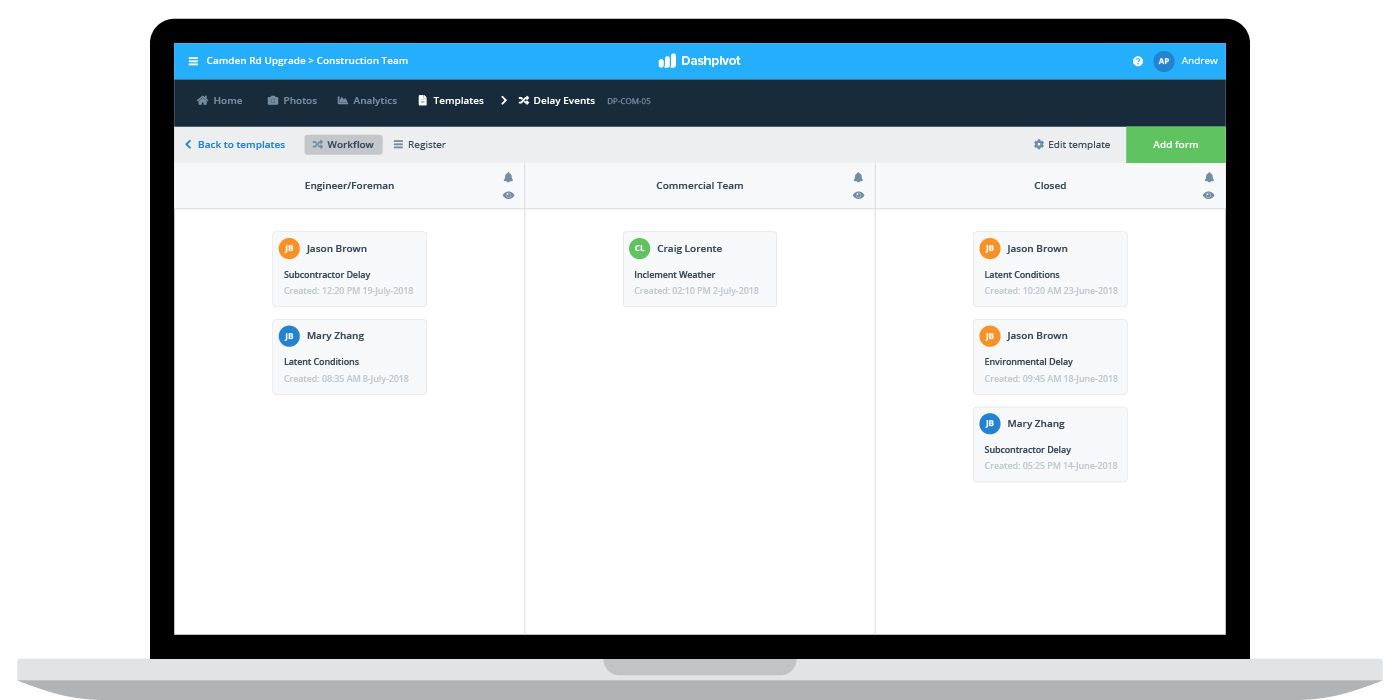Commercial – Delay analysis in construction and construction contracts

Delay analysis in construction contracts and construction projects
What is delay analysis in construction?
Construction projects are complicated. Every project no matter how big or small has a number of stakeholders, a number of project parties responsible for delivering their part of a project and thousands of moving pieces including labour, equipment and supplies.
Because of this complexity, construction projects often get delayed. It only takes one of these pieces to fall out of place or get delivered late for an entire phase of works or an entire project to get delayed too. These delays can then snowball into other delays which become more and more difficult to manage and mitigate, and before too long, a construction projects is months or years behind schedule.
While the construction industry continues to attempt to avoid and eliminate these delays through proactive measures and better planning, the fact that there is always going to be some delays means that clients, contractors and subcontractors must be able to analyse and understand these delays in order to decide if and where the fault lies.
Delay analysis is not easy and final analysis often requires deep expertise in construction project management. For example, what appears to be a single major project delay may have evolved from a sequence of minor delays or complicated mix of issues.
The general causes of these delays include:
- Errors and omissions in contract documents including missing information and conflicting information
- Owner-caused delays for reasons under their control including scope changes and cash flow
- Contractor caused delays for reasons under their control including contractual issues, improper planning and improper site resourcing
- Project team caused delays including team conflicts and issues
- Delays for reasons beyond the owners or contractors control including weather conditions, subcontractors going out of business and strikes
The goal of delay analysis and the process of delay analysis is to discover and agree to who (if anyone) was at fault for the delay and who will 'pay' for the delay.
But even when this is all figured out, it's still necessary for all project parties to keep projects moving forward as quickly and accurately as possible - or projects can quickly spiral out of control.
How to manage delays on construction projects
Managing delays effectively on construction projects is all about being able to communicate and collaborate quickly and effectively while also being setup to quickly adapt to changes and unforeseen circumstances.
While it is absolutely necessary from a commercial and financial standpoint to pinpoint who and what was responsible for a delay, it's equally important that work continue and that the focus is on project delivery.
Construction projects are going to meet delays, changes and variations, and it's up to the owners, contractors and subcontractors to work together to manage these changes smoothly.
Much of this communication and collaboration occurs over documents and forms. Project parties can issue change orders, variations, site instructions and more when a project delivery issue arises or something needs to be changed for any number of reasons.
The more quickly project teams and parties can communicate these changes and have them okayed or approved by other parties, the faster projects can continue to move forward - correctly.
There is an example of a change event and delay tracking form below, which has been used to outline and describe a subcontractor delay.
Use and customise this delay analysis report for free.
How to manage delays in construction contracts
Construction contracts are there for a reason, and they become increasingly important when issues and disputes arise.
In addition to uncovering who was at fault for the delay, it's important that the companies or 3rd party analysis surfaces what type of delay the delay was:
- Was it a critical or non-critical delay?
- Was it an excusable or non-excusable delay?
- Was it a compensable or non compensable delay?
- Was it a concurrent delay?
As you can probably interpret from these names and sentences - whether or not something is critical or non-critical or excusable or non-excusable - will impact the severity of the consequences and what needs to be done.
For example, in the event of a excusable delay - where the delay was not caused by the contractor - may require an extension of time from the subcontractor who owes them time, which you can see an example of below.
Contractor's Name
Contractor Address
Contract Name
Contract Number
EXTENSION OF TIME
I refer to your extension of time claim dated [insert date of the claim]. In accordance with clause [insert the contract clause] of the General Conditions of Contract, the Principal grants extension/s of time:
[Insert number of days requested and reasons for the time extension.]
The Contractual Completion Date (as previously extended) was [insert contract completion date including previous time extension approvals]. This extension of [number of days] days makes [insert new completion date] the Contractual Completion Date.
Signed by,
Authorised Person
Speeding up delays and delay analysis with smarter processes
We've talked to the importance of speed and effective collaboration in managing and mitigating construction delays as best as possible, and one of the ways that companies (owners, contractors and subcontractors) are able to better manage these processes today is through software and smart automation.
Companies today are able to manage the entire delay process from start to finish with software, from standardising digital forms which can be completed on site to keeping important records and proof in the platform (photos and videos) and automating the communication process through smart workflows - like below.

Managing this delay process with software results in a number of benefits including:
- Improving internal and external collaboration across delays and changes
- Improving project records so that you have proof of work and issues when required
- Get real-time insights into the delays on your projects, including the causes of delays and how many there have been. This enables you to better understand how other project parties are performing
If you're keen on seeing how this software can help you manage delays and changes, then take a look here.
If you're just looking for a simple and reliable method for capturing , organising and tracking your delays while better managing your delay analysis process and records, get started with a digital template below.
While we may not be able to eliminate construction delays completely, we can certainly all work together to create a more streamlined and collaborative network where it's easier to surface what went wrong and keep projects moving forward on time and on budget - which benefits everyone.
See how people in 80+ countries use construction project management software to better manage delays, changes and all of their project work.


